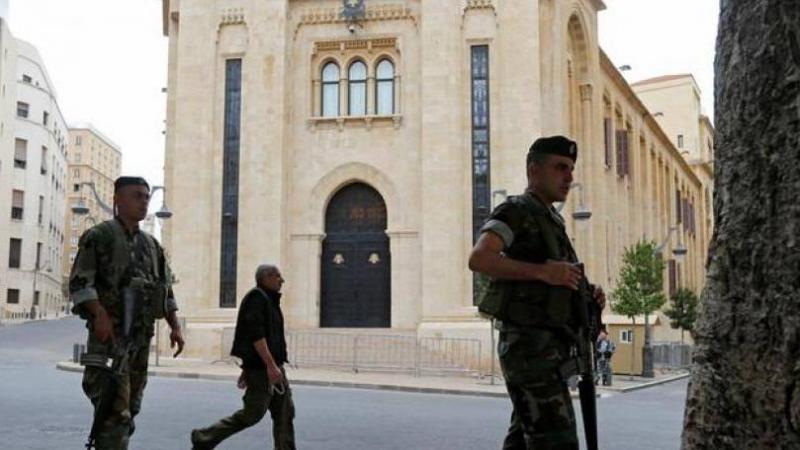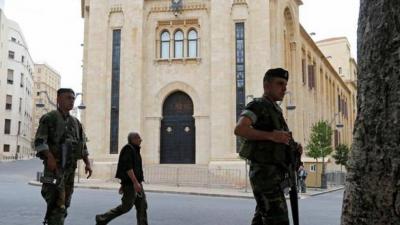Political movement and consultations in Lebanon are focused on the distribution of the presidency and membership of parliamentary committees, for which Speaker Nabih Berri has scheduled a session on Tuesday to conduct the elections. It has been customary for a prior agreement among the main political forces to precede the election session to avoid the general assembly from enduring long hours or even several days for the election process to conclude. However, as of now, it remains unclear whether a prior agreement will precede Tuesday's session or if there is a trend toward a new electoral battle similar to that which occurred last week during the election session for the parliament's president and vice president.
The Deputy Speaker, Elias Bou Saab, stated after his meeting yesterday with Speaker Nabih Berri that "there is a keen desire to start working as soon as possible on all matters, including completing the elections of the committees and other pending issues, as well as other matters that have been stalled for some time from the previous government." The distribution of deputies across a large number of blocs and some insisting on participating in parliamentary work as "independents" complicates reaching prior agreements. Additionally, the sharp political conflict among various forces causes each to strive to raise its political ceiling, making it more likely that voting will be conducted to resolve disputes over specific positions rather than negotiating who will hold them.
The permanent committees of the parliament are divided into 16 committees. Constitutional expert Dr. Saeed Malek explains that some are essential, such as the Finance and Budget Committee, the Administration and Justice Committee, the Public Health Committee, and the Public Works Committee, while others are considered less critical, such as Defense, Interior, Environment, Youth, and Sports. He also mentions three subcommittees: Human Rights, Women and Children, and Technology. Malek notes in a statement to "Asharq Al-Awsat" that "these committees are the legislative kitchen where proposals and draft laws are studied and discussed, and amendments are made for their approval in the joint committees and subsequently the general assembly. Thus, we see that political forces seek to dominate the presidency of essential committees," pointing out that "the division of these committees among sects and communities is customary. For example, the Finance and Budget Committee and the Administration and Justice Committee usually go to a Maronite, while other committees might be allocated to Druze, Sunni, or Shia representatives."
Members of the 13 Change Forces are striving to actively engage in the work of parliamentary committees to become genuine partners in the legislative kitchen, monitoring and pressuring for the passage of certain laws. There does not seem to be an insistence from them on entering into a decisive electoral battle on Tuesday. One of them confirmed to "Asharq Al-Awsat" that they will present their nominations to the General Secretariat of the Council, stating that if the distribution is logical, they will not push for elections that could last for four days. However, if it is otherwise, there is no doubt that they are prepared for an electoral confrontation.
The "Progressive" Party preemptively issued an announcement regarding the candidates of the "Change" deputies for committee membership and presidency, proposing Deputy Najat Aoun for membership in the Environment Committee, in addition to the Education, Higher Education, and Culture Committee, and Deputy Mark Daw for membership in the Finance and Budget Committee and the National Economy, Trade, and Industry and Planning Committee. Both are among the 13 change deputies.
While some sources confirmed that there is a dispute over the presidency of more than one committee that could lead to voting, sources from the "Amal" movement stated that they prefer there to be an agreement representing everyone and respecting sects in the committee matters, saying to "Asharq Al-Awsat": "There should not be battles as in the first session of the new parliament. However, if there is no agreement on all committees, then elections would be the solution."
This sentiment was echoed by Bilal Abdullah, a deputy from the "Progressive Socialist" party, who ruled out battles for committee membership and presidency, as occurred during the election of the Council’s Bureau, since these are ultimately specialized committees that can represent everyone. He asserted in a statement to "Asharq Al-Awsat" that "the competition for leadership of the essential committees is natural, and we hope to reach a certain formula that represents everyone." He added, "In the end, there might be an agreement on some committees, and there may be disagreements on others. Therefore, where there is no agreement, we resort to voting," pointing out that his party demands the presidency of the Health Committee.
Deputy Alan Aoun from the "Free Patriotic Movement" expressed to "Asharq Al-Awsat" that "there is ample room for understanding, given that there is potential for representing all blocs in all committees and distributing committee presidencies according to established customs." He considered that "anyone who claims that this is a form of quotas is completely ignorant of the nature of legislative work, which requires the participation of representatives of blocs in discussions of laws in all committees." He added, "There is no influence in parliamentary committees; rather, there is a sharing in discussions to produce the best possible legal formulation, with the final decision and word resting with the parliamentary blocs in the general assembly."
Aoun confirmed their preference for reaching an agreement among blocs to expedite the formation of committees and begin their work, "but if some insist on rejecting an agreement, there is no problem with the election process." He stated, "We are committed to having a significant presence in parliamentary committees as a large bloc that wants to play its oversight role in the upcoming phase, and the Finance and Budget Committee is certainly one of our concerns, given the complexity of the issues at hand and the required financial solutions." The "Forces" party also does not seem opposed to the idea of a prior understanding before Tuesday's session, although their sources emphasize their effort for their representatives to participate in most committees based on the ongoing recommendation from the party’s leader for all deputies to actively participate in the committees and attend their meetings, stressing that "it is the inherent and natural right of the Forces to maintain the presidency of the Administration and Justice Committee, given the active role, recognized by all, played by Deputy George Adwan at the head of this committee."




